RV Fridge Maintenance
 Your appliances do a lot for you and your family while you’re out on the road. If you spend a significant amount of time traveling, then they become even more important. And just like appliances in a stationary home, you may not truly appreciate them until they break down. Then again, if this happens on the road, it can be even more stressful than if you found out about it right before a big trip.
Your appliances do a lot for you and your family while you’re out on the road. If you spend a significant amount of time traveling, then they become even more important. And just like appliances in a stationary home, you may not truly appreciate them until they break down. Then again, if this happens on the road, it can be even more stressful than if you found out about it right before a big trip.
Avoid these problems by taking good care of them, especially your fridge. Your RV fridge won’t need much maintenance, but you’ll want to be mindful of the things you are responsible for. We here at Herold Trailer Sales have outlined them below, but if you need additional help, then stop by our location near Des Moines and Ankeny, Iowa, proudly serving our neighbors in Omaha, Nebraska.
Preparing your Fridge for Travel
If you’re powering up your RV after it’s been sitting idly for a while, then make sure you do this early enough that your fridge will be ready to go when it’s time to load it with food. This means somewhere between eight and ten hours you’ll want to turn on the unit and let it cool without any produce or groceries inside. If you load it before it’s reached the correct cooling point, the unit will need more power for a longer period of time to settle into the right temperature. While you’re at it, inspect your fridge to make sure there aren’t any obvious signs of damage or underperformance.
Post-Trip Defrost
When the trip’s all over, if you’re choosing to power down your RV, you’ll want to be prepared for your fridge defrosting. This essentially means it’s going to warm up again. Remove all the food items from the fridge and open the doors to speed up the process. You’ll also need to lay down some towels, since all the melting ice needs to go somewhere and you don’t want water spilling all over your floor. If you have a smaller fridge, you might even consider taking it outside so there’s no risk of creating a big mess (and on hot days it’ll make the defrost process faster).
Safety Tips
If we’re being completely honest, RV refrigerators aren’t exactly known for their danger. For the most part, you won’t have to worry about anything except the occasional strange smelling food item. However, if you start smelling ammonia, then you’ll want to get your rear in gear. Ammonia fumes are a sign that there’s a coolant leak, as many RV fridges still use ammonia-based products for this purpose.
A leak can create bigger problems for your unit, so the first thing you should do is turn it off. Next, you’ll want to open all the windows and doors and have everyone exit the RV. This is because ammonia fumes are toxic to humans and can irritate the lungs, cause dizziness and nausea, and trigger other health problems. Once you’re safely outside, contact your nearest RV technician to discuss next steps and get your RV fridge repaired.
Beyond that, you’ll just want to follow basic good safety practices if you choose to do your own RV repairs or perform more technically challenging maintenance. Remove all flammable objects from your general vicinity as you’re working and use caution if you need to access the roof. Ask someone to spot you and if you’re walking on the roof, then wear shoes with a good grip. Also, before performing any maintenance tasks, consult your owner’s manual for guidance on your specific model.
Then again, not everyone is confident enough to work on their own refrigerator. It can get complicated and expensive to fix if you accidentally break it. If you need help with any major or minor RV repair, then contact the service department at your local RV dealer, Herold Trailer Sales. We welcome all patrons from Des Moines and Ankeny, IA, as well as Omaha, NE.

